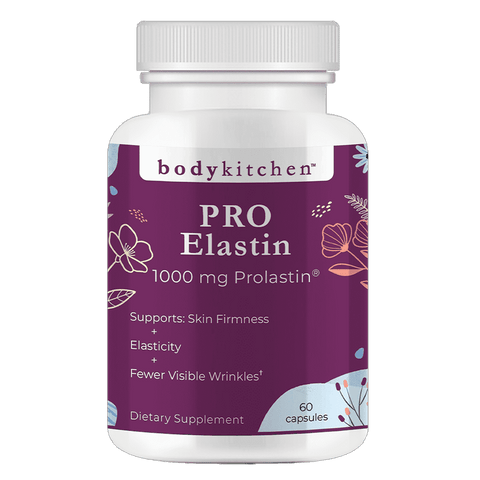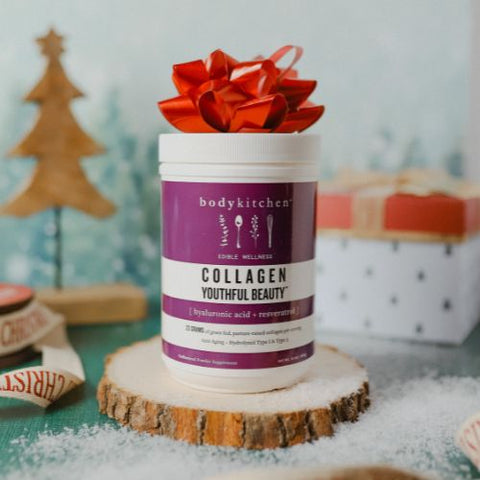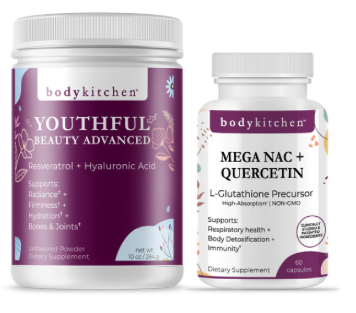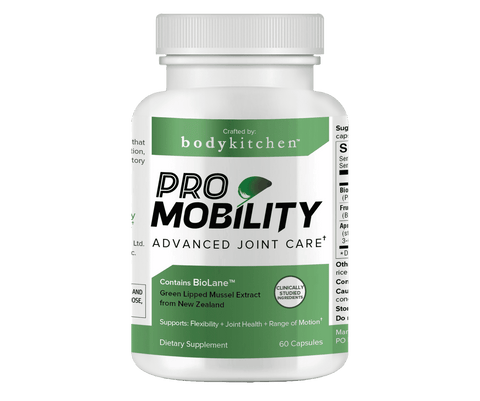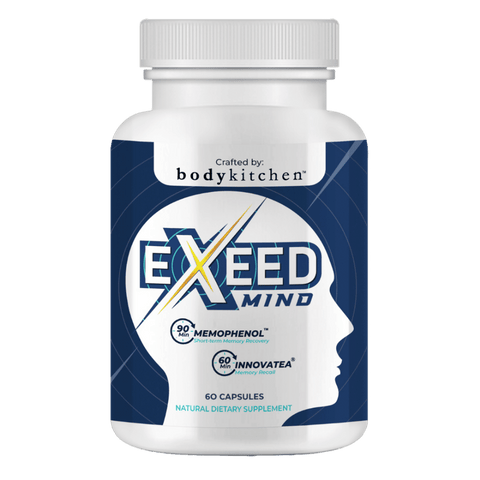How Long Does It Take for Quercetin to Work?
Just as macronutrients such as fat, protein, and carbs are important parts of a healthy diet, micronutrients are also essential for numerous bodily functions, which makes them essential for overall health.
Among these micronutrients, flavonoids stand out as a group of antioxidants that counteract the effects of free radicals in the body to potentially protect against cancer, heart disease, and other serious illnesses. Flavanols are a type of flavonoid, of which quercetin is one of many. Quercetin in particular is a potent antioxidant and anti-inflammatory that may have considerable health benefits, as described below.
Disclaimer: before making any of the changes suggested below, please speak with a physician. Body Kitchen’s advice is not a substitute for speaking with a medical expert, since we are not aware of the reader’s possible medical conditions, etc.
What is Quercetin?
Quercetin is a pigment found in a variety of plants that is also known as a powerful antioxidant and anti-inflammatory. The compound is one of the most abundant antioxidants of its kind and is present in common fruits and vegetables, such as apples, berries, and onions.
Flavanol Antioxidant
Quercetin is one of many antioxidant flavanols, a group that also includes compounds such as myricetin, kaempferol, and fisetin. Many flavanols have been shown in clinical studies to have health benefits, such as lowering heart disease risk, and are found in edible plants ranging from kale to tea to grapes.
What are the Benefits of Quercetin?
One of the most important quercetin health benefits is its major antioxidant properties. Being an antioxidant means that quercetin may help to counteract tissue damage caused by free radicals. This is thought to minimize oxidative stress, and by extension, the risk of chronic diseases.
Also significant among the health benefits of quercetin are the compound’s anti-inflammatory effects. Since quercetin consumption may reduce markers of inflammation, it is believed to reduce the risk of chronic and overactive inflammatory response, which may contribute over time to serious, even life-threatening conditions such as diabetes and heart disease.
Because quercetin benefits may include reduction of oxidative damage, which is linked to the contribution of skin aging, quercetin may also prevent wrinkles and the loss of collagen that may lead to sagging skin. Quercetin skin benefits may also include UV protection, and even anti-inflammatory effects when the compound is applied topically.
How Long Does It Usually Take for Quercetin to Work?
Factors that could impact how long quercetin takes to work may include why someone is taking it, the severity of symptoms/conditions being addressed, if any, the amount of quercetin being taken, and the degree of absorption of the quercetin.
However, it’s worth noting that in a study of women with rheumatoid arthritis, participants took 500 mg of quercetin per day and experienced reduced arthritis symptoms and lower markers of inflammation after about two months of taking the supplement.
What Helps Quercetin Absorb Better?
There are a few additional compounds that may help the intestinal tract to absorb quercetin more effectively, especially in supplement form: bromelain and black pepper extract to start.
Black Pepper Extract
The benefits of black pepper extract are numerous and may include increasing bioavailability of nutrients to increase nutrient absorption by 30 percent or more. Black pepper extract benefits may be attributed to the fact that it contains a high concentration of piperine, an alkaloid antioxidant that may not only increase nutrient absorption but also is thought to benefit brain health, improve blood sugar control, and reduce systemic inflammation. It is rare to take a separate black pepper extract supplement; it often comes combined with other beneficial compounds, such as quercetin and curcumin (derived from turmeric).
Bromelain
Bromelain is a protein-digesting enzyme that is derived from pineapples. Similar to black pepper extract, one of the most important bromelain benefits may be the fact that it increases absorption of other compounds, including quercetin. One may take a quercetin supplement and a separate bromelain supplement, or for greater convenience, a quercetin with bromelain supplement.
Who Should Avoid Quercetin?
Although quercetin is generally considered to be a safe supplement, there are some groups who should not take quercetin: people with kidney diseases, pregnant women, and breastfeeding women.
What to Avoid When Taking Quercetin
Make sure to speak to a health care professional before starting quercetin, but especially while taking any of the following medications, which may interact with quercetin:
- Antibiotics, including fluoroquinolones
- Blood thinners (anticoagulants), such as Warfarin and Aspirin
- Chemotherapy drugs
- Corticosteroids
- Cyclosporine
- Digoxin
- Medications that are altered by the liver
What Foods are High in Quercetin?
The majority of foods that are high in quercetin are fruits and vegetables. High-quercetin foods can include apples, onions, citrus fruits, parsley, sage, grapes, and dark-colored berries such as blueberries and blackberries. Other foods with quercetin in large quantities include olive oil, red wine, and tea.
Side Effects of Quercetin
Although quercetin is considered safe for most people, some of the most common side effects of quercetin include stomach upset, tingling in the arms and legs, and headaches.
In addition, taking large doses of quercetin (i.e., 1,000 mg or more per day) may cause kidney damage. Medical professionals recommend taking breaks from taking quercetin. There is relatively little data on the long-term safety of high doses of quercetin, but there is currently no evidence of toxicity with doses of up to 1,000 mg per day for as long as 12 weeks.
How Much Quercetin Should You Take Per Day?
When it comes to the question of exactly how much quercetin per day is beneficial, there is relatively little evidence for particular quercetin dosing recommendations. The typical dose of quercetin that’s found in quercetin supplements is typically 500 to 1,000 mg per day, with most clinical studies of the compound administering between 500 and 1,000 mg daily in multiple divided doses.
Best Quercetin Supplement
With an almost overwhelming range of options from which to choose, those seeking to benefit from quercetin’s potent antioxidant and anti-inflammatory benefits may be wondering how to find the best quercetin supplements on the market. Quercetin supplements may be especially useful for those who are unable to get enough quercetin from dietary sources alone.
However, not all quercetin supplements are equally effective. Choosing a quercetin supplement with additional compounds proven to aid absorption may ensure maximum benefits from quercetin supplementation.
Mega NAC + Quercetin
Body Kitchen’s Mega NAC + Quercetin Supplement meets the important criterion. Providing a combination of powerful immune and respiratory benefits, our Mega NAC + Quercetin supplement is perfectly formulated to maximize the absorption of its beneficial compounds. The included black pepper extract has been shown to improve nutrient absorption by 30 percent or more in clinical trials.
Not only does the Body Kitchen Mega NAC + Quercetin Supplement contain 600 mg of quercetin which may fight free radicals, improve cardiovascular health, lower inflammation, improve skin health, and boost immunity, but it also provides 600 mg of pure N-acetyl cysteine.
N-Acetyl (NAC) Cysteine Benefits
Benefits of N-acetyl cysteine, also known as NAC, may include increased production of glutathione, an essential antioxidant in the body. N-acetyl cysteine may also provide expectorant properties when the lungs are under stress.



